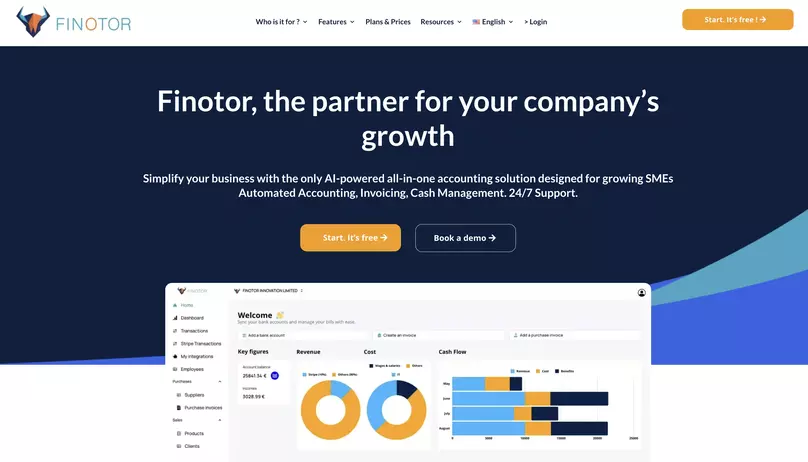Contents
Imagine a world where you could earn money while you sleep, simply by recommending products and services you love. Sounds too good to be true, right? Well, with affiliate marketing, this dream can become a reality. This comprehensive guide on how to start affiliate marketing will help beginners navigate the world of affiliate marketing and set them on the path to passive income success. Let’s dive in!
Key Takeaways
- Start your affiliate marketing journey today and maximize success with the right niche, program & content!
- Build trust with your audience through effective link placement & honest relationships.
- Track performance metrics for continual improvement to optimize results.
Understanding Affiliate Marketing
Affiliate marketing is a revenue-generating model where individuals, known as affiliate marketers, earn commissions by promoting products or services, leading to a successful affiliate marketing business. The key players in this industry are the businesses offering the products or services, the affiliate network connecting them, the affiliate marketer promoting them, and the customers who make the purchases.
To start affiliate marketing, follow these steps:
- Select a niche you’re passionate about
- Identify an affiliate program that meets your goals
- Establish a platform for content sharing
- Create content to attract traffic
- Strategically promote affiliate products
- Monitor and improve your performance
Both businesses and affiliate marketers can benefit from this model, as it provides an opportunity for businesses to attract new customers and enables affiliates to create content and generate income.
In an affiliate business program, the merchant pays the affiliate a percentage of the product’s selling price after the consumer has purchased the product using affiliate marketing strategies. This is achieved, for example, by using affiliate network promotion techniques and affiliate marketing strategies. AInsi, with the right resources, almost anyone can generate affiliate revenue.
Choosing Your Niche

The correct niche selection can make or break your affiliate marketing success, as it safeguards against possible income losses while enhancing your earning potential. This section delves into balancing passion with profitability and emphasizes the necessity of market research to determine demand, competition, and promising affiliate programs.
And no matter how good your online marketing skills are, you’ll make less money on a bad product than you will on a valuable one.
Passion vs. Profitability
When selecting a niche, it’s important to consider both your enthusiasm for the topic and the potential for profitability. Your passion for a niche can be a major contributor to success, as it gives you the drive and excitement to produce top-notch content and successfully promote affiliate products using your unique affiliate link.
However, you should also evaluate the niche’s profitability, as it ensures a sustainable income. Consider the following factors:
- The competition level in the niche: A lack of competition may indicate that the niche is not viable or that others have already tried, failed, and moved on, which can impact your affiliate marketing campaigns.
- The demand for products or services in the niche: Are people actively searching for information or solutions related to the niche? This indicates a potential market for affiliate products.
- The potential for recurring revenue: Are there opportunities for ongoing sales or subscriptions in the niche? This can provide a steady income stream.
By considering both your passion and the potential for profitability, you can choose a niche that aligns with your interests and offers a sustainable income for your affiliate marketing efforts.
Conducting research and assessing potential affiliate programs can lead you to a niche that combines profitability with your passion, thus contributing to your success as a successful affiliate marketer in affiliate marketing.
Market Research
Market research aids in comprehending your target audience, competitors, and industry trends, which in turn can help pinpoint potential opportunities and threats in your selected niche. Free niche research tools, such as Google Trends, can help you uncover unique niche opportunities and make your affiliate marketing work.
Analyzing the demand, competition, and potential affiliate programs enables you to make informed decisions about your niche, thereby improving your chances of success. To validate your idea, gain insights from potential customers by asking if they would buy your proposed product or service, not just if they like it. You can also leverage tools like Keyhole to identify people who have tweeted about specific topics, allowing you to inform them about your idea.
Selecting an Affiliate Program

Choosing the appropriate affiliate program is pivotal for success in your affiliate marketing venture. This section will delve into various types of affiliate programs and guide you in evaluating aspects like commission rates, cookie duration, and product quality when selecting a program.
Types of Affiliate Programs
There are several types of affiliate programs, including:
- Search affiliates
- Influencer programs
- Review sites
- Coupon sites
- Email marketing
- Affiliate networks
Each program type offers different structures, payment models, and product offerings, allowing you to choose the one that best suits your needs and create effective affiliate marketing campaigns.
Payment methods such as:
- PayPal
- Direct deposit
- Check
- Credit card
help affiliate marketers receive their earnings with ease. Pay-per-click and pay-per-sale are the two primary ways to earn commission in affiliate marketing, and understanding these models can help you make your affiliate marketing work.
When promoting digital products, aim for a 50 percent or higher commission rate to maximize your earnings.
Evaluating Affiliate Programs
When evaluating affiliate programs, consider the following factors:
- Commission rate
- Cookie duration
- Conversion rate
- Earnings per click (EPC)
- Brand reputation
- Customer support
- affiliate network
- affiliate website
These factors can help you make an informed decision when choosing an affiliate program that aligns with your goals and maximizes your earning potential.
Be sure to check the following when considering affiliate marketing opportunities:
- Payment terms, such as whether you’ll be paid monthly or after reaching a certain threshold
- The reputation of the brand and the demand for the product
- Brand alignment and reputation, which can help you build strong relationships with your audience and ensure your brand’s long-term success in the affiliate marketing industry.
Building Your Platform
Establishing a platform is a vital step towards successful affiliate marketing. This section explores the benefits of using a website or social media channels for promoting your content and affiliate products.
Website Creation
Creating an affiliate website can be a powerful asset, offering you an ideal platform to showcase your affiliate marketing content and maximize your promotional opportunities. Platforms such as Hostinger Website Builder, Wix, and Weebly are great options for creating a website for affiliate marketing.
For a minimal cost, you can secure a domain name and hosting for the first year, getting your affiliate business and affiliate site up and running quickly.
That being said, we recommend building a website and using search engine optimization (SEO) to rank your content high on Google.
You can create your identity to trademark Your Business name.
Launching an affiliate marketing website can also be done for less than €5/€5, but there’s a lot you need to learn about affiliate marketing to make it really work. Is affiliate marketing easy for beginners? The good thing is that affiliate marketing has virtually no barriers to entry.
Social Media Promotion
Social media promotion is a great way to drive traffic to your website or directly promote affiliate products, depending on platform guidelines. When selecting a social media channel for affiliate marketing, consider the customer base to ensure effective targeting and success in your marketing efforts.
Adoption of virtual reality technologies to boost affiliate campaigns and increase the affiliate income. Increased use of artificial intelligence, e.g., through personalized content creation to scale affiliate marketing.
You can use some tools like Firstpromoter :

Ensure transparency by including appropriate disclosures in your social media posts to inform followers about your unique affiliate link. Sharing affiliate marketing links on Facebook, for example, can be a great strategy for affiliates with a large following or a specialized product. To maximize your promotions on Facebook, create a dedicated page or group to reach your target audience.
Creating High-Quality Content
Producing high-quality content is a key aspect of achieving success in affiliate marketing. This section investigates different content types ideal for affiliate marketing and highlights the role of SEO optimization in drawing and engaging audiences.
Content Types
Blog posts, reviews, comparisons, videos, and social media posts are all great content types to leverage for affiliate marketing, helping you increase your affiliate sales. When crafting content, include an affiliate disclosure that clearly explains your relationship with the product or service and informs readers that you may receive a commission if they purchase through your affiliate link.
Targeting specific, long-tail keywords in your affiliate marketing content is a smart strategy, as they are more likely to rank than generic keywords. This approach can help your content get seen on search engines and social media platforms, making your affiliate marketing work more effectively.
SEO Optimization
SEO optimization helps improve content visibility on search engines, driving organic traffic to your platform. By creating high-quality content, optimizing for mobile devices, and tracking and analyzing performance, you can ensure successful SEO optimization.
The steps to optimize SEO and get the best results include:
- Keyword research
- Content optimization
- Link building
- Technical optimization
By monitoring performance metrics such as traffic, conversion rates, and revenue, marketers can make necessary adjustments to their strategies and maximize their results.
Promoting Affiliate Products Effectively
This section focuses on the significance of strategic link placement and cultivating trust with your audience to boost affiliate product conversions. We’ll cover effective link placement techniques and share tips on fostering trust and transparency with your audience.
Link Placement
Link placement should be natural and relevant within your content, avoiding spammy or intrusive tactics. By placing links in a way that is natural and relevant to the content, you can ensure a positive user experience and provide meaningful value to your audience.
To maximize your earning potential, use WordPress plugins like Pretty Links or ThirstyAffiliates to cloak your affiliate links.
Building Trust with Your Audience
As an affiliate marketer , you can promote products from many different companies and earn commissions from all of them. And building trust with your audience is essential for maximizing affiliate marketing success. By providing valuable, honest content and maintaining transparency about your affiliate relationships, you can foster trust and credibility with your audience. Remember to include an affiliate disclosure that clearly explains your relationship with the product or service and informs readers that you may receive a commission if they purchase through your affiliate link.
Tracking and Optimizing Performance
![]()
Monitoring and refining performance is a key element for attaining success in affiliate marketing. This section will discuss different performance metrics and optimization methods that can assist you in enhancing your results and achieving your objectives.
Performance Metrics
Performance metrics such as traffic, conversion rates, and revenue can provide valuable insights into the success of your affiliate marketing campaigns. By monitoring these metrics through affiliate dashboards and analytics tools, you can make informed decisions about your marketing strategies and product development.
Understanding and tracking these key performance metrics can help you identify potential areas of improvement in your affiliate marketing campaigns and accurately track your success.
Optimization Techniques
Optimization techniques involve testing and refining content, link placement, and promotional strategies to maximize your affiliate revenue. By experimenting with and refining your content, such as headlines, copy, images, and videos, you can maximize the impact of your content and increase your affiliate sales.
In addition, testing and refining your link placement and promotional strategies, such as email campaigns, social media campaigns, and influencer marketing, can help you achieve maximum impact and success in your affiliate marketing efforts, utilizing an effective affiliate marketing strategy.
Summary
In conclusion, affiliate marketing is a powerful tool for generating passive income. By choosing the right niche, selecting an affiliate program, building a platform, creating high-quality content, promoting affiliate products effectively, and tracking and optimizing performance, you can achieve success in the world of affiliate marketing. Now, it’s time to take action and turn your dreams of passive income into reality!
Frequently Asked Questions
Can you make $100/100€ a day with affiliate marketing?
Yes, with dedication and a well-thought-out strategy you can make $100 a day through affiliate marketing on Instagram. Choose the right niche, build an engaged following, and find suitable affiliate programs to get started.
How much does it cost to start affiliate marketing?
Getting started with affiliate marketing can cost as little as $0 or up to $350, depending on the traffic and online assets you use.
How to start affiliate marketing for free?
Start your affiliate marketing journey for free by finding an affiliate program and a niche that you’re passionate about, targeting the right keywords, creating engaging content that builds trust, promoting it hard and scaling up. Engage with your audience to ensure successful growth.
Do you need a license to do affiliate marketing?
Affiliate marketing in a affiliate marketing business, may not require a specific license, however you still need to get a basic state business license to legally operate. Depending on your location, you may also need a city or county license.
How do I choose the right affiliate program?
When choosing an affiliate program, assess its commission rates, cookie duration, product quality and brand reputation to ensure it’s the right fit for you. Consider these factors carefully before making a decision.









